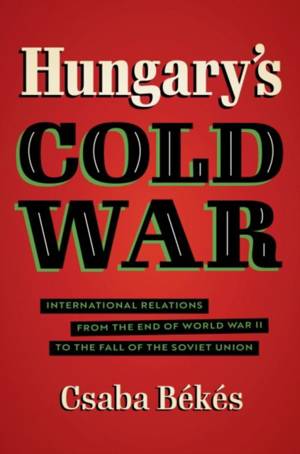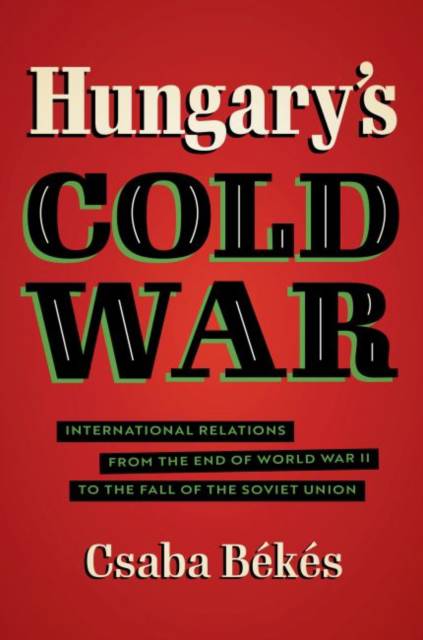
Bedankt voor het vertrouwen het afgelopen jaar! Om jou te bedanken bieden we GRATIS verzending (in België) aan op alles gedurende de hele maand januari.
- Afhalen na 1 uur in een winkel met voorraad
- In januari gratis thuislevering in België
- Ruim aanbod met 7 miljoen producten
Bedankt voor het vertrouwen het afgelopen jaar! Om jou te bedanken bieden we GRATIS verzending (in België) aan op alles gedurende de hele maand januari.
- Afhalen na 1 uur in een winkel met voorraad
- In januari gratis thuislevering in België
- Ruim aanbod met 7 miljoen producten
Zoeken
Hungary's Cold War
International Relations from the End of World War II to the Fall of the Soviet Union
Csaba Békés
€ 64,95
+ 129 punten
Uitvoering
Omschrijving
In this magisterial and pathbreaking work, Csaba Békés shares decades of his research to provide a sweeping examination of Hungary's international relations with both the Soviet Bloc and the West from the end of World War II to the dissolution of the Soviet Union in 1991. Unlike many studies of the global Cold War that focus on East-West relationships--often from the vantage point of the West--Békés grounds his work in the East, drawing on little-used, non-English sources. As such, he offers a new and sweeping Cold War narrative using Hungary as a case study, demonstrating that the East-Central European states have played a much more important role in shaping both the Soviet bloc's overall policy and the East-West relationship than previously assumed. Similarly, he shows how the relationship between Moscow and its allies, as well as among the bloc countries, was much more complex than it appeared to most observers in the East and the West alike.
Specificaties
Betrokkenen
- Auteur(s):
- Uitgeverij:
Inhoud
- Aantal bladzijden:
- 414
- Taal:
- Engels
- Reeks:
Eigenschappen
- Productcode (EAN):
- 9781469667485
- Verschijningsdatum:
- 21/06/2022
- Uitvoering:
- Paperback
- Formaat:
- Trade paperback (VS)
- Afmetingen:
- 156 mm x 234 mm
- Gewicht:
- 635 g

Alleen bij Standaard Boekhandel
+ 129 punten op je klantenkaart van Standaard Boekhandel
Beoordelingen
We publiceren alleen reviews die voldoen aan de voorwaarden voor reviews. Bekijk onze voorwaarden voor reviews.









